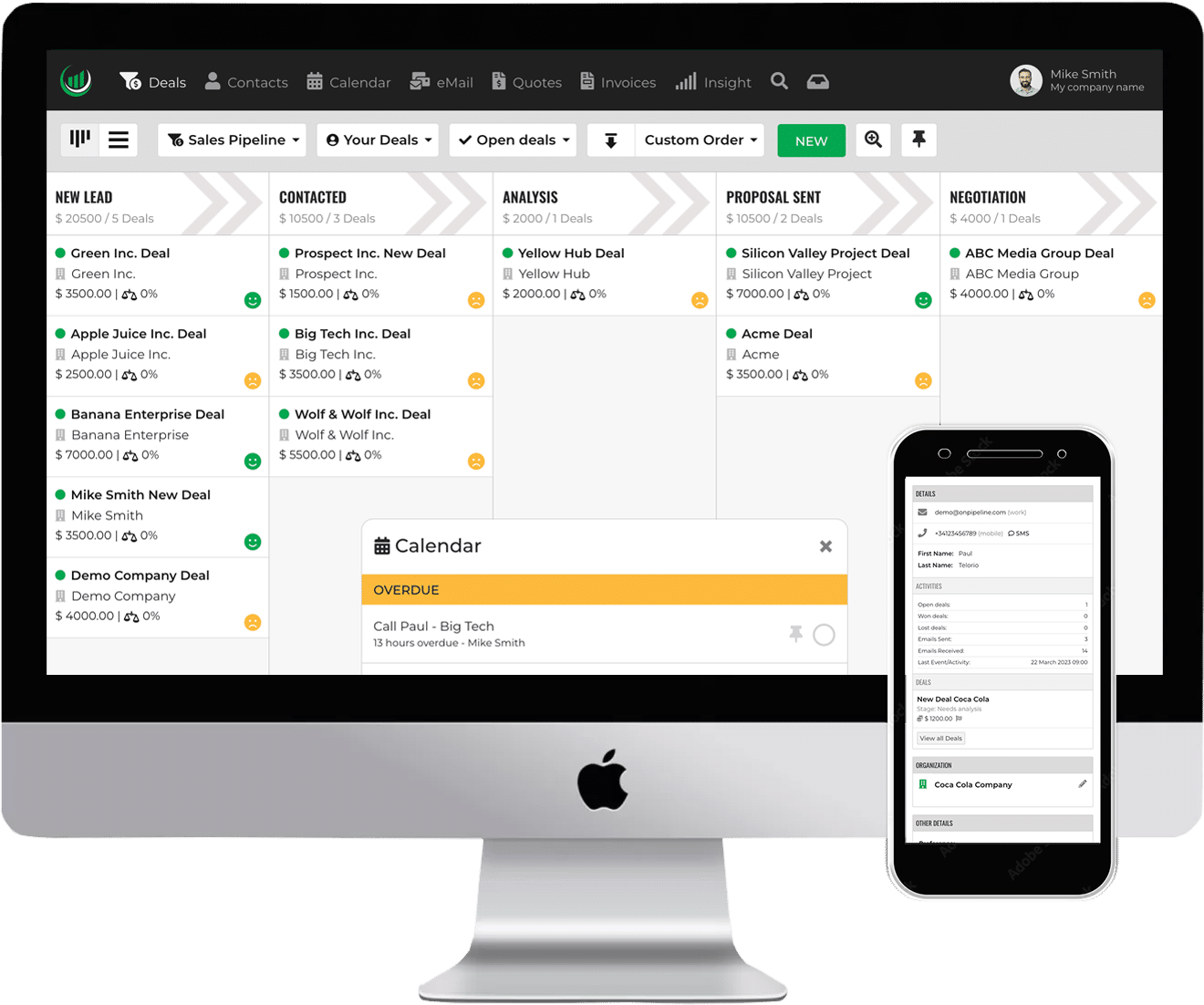While they might appear similar, Sales Executives and Account Managers actually have different roles and goals. Let’s take a closer look at what sets them apart.
Sales Executive
A Sales Executive is often seen as the front-line soldier in the sales battle. Their primary mission is to seek out new business opportunities and close deals. This role is characterized by a proactive approach to sales, involving significant time spent on lead generation, prospecting, and making persuasive sales presentations. The goal is simple: bring new clients into the fold.
Key Responsibilities of Sales Executives
Sales Executives are at the forefront of driving revenue and growth for their organizations. Their primary focus is on acquiring new customers and closing deals. Here are the key responsibilities of Sales Executives:
1. Lead Generation
Identifying Prospects: Sales Executives are responsible for identifying potential customers through various channels such as networking, cold calling, online research, and attending industry events.
Developing Leads: They nurture initial interest into qualified leads by engaging with prospects and understanding their needs.
2. Sales Presentations
Product Demonstrations: Conducting sales presentations and demonstrations to showcase the features and benefits of the company’s products or services.
Customizing Pitches: Tailoring sales pitches to the specific needs and pain points of each prospect to increase the chances of closing a sale.
3. Closing Sales
Negotiation: Engaging in negotiations to finalize terms and conditions that are favorable to both the company and the customer.
Contract Finalization: Preparing and managing all paperwork necessary to close sales, including contracts, agreements, and proposals.
4. Market Research
Understanding Market Trends: Keeping up-to-date with industry trends, competitor activities, and market conditions to identify new sales opportunities.
Customer Insights: Gathering and analyzing customer data to better understand their needs and preferences.
5. Client Acquisition
Strategy Development: Developing and implementing strategies to attract new clients and expand the customer base.
Target Setting: Setting and achieving sales targets, quotas, and KPIs as outlined by the sales management team.
6. Relationship Building
Initial Relationship: Establishing strong initial relationships with potential customers to foster trust and credibility.
Client Handover: Smoothly transitioning new clients to account managers or customer success teams for ongoing support and relationship management.
7. Reporting and Analysis
Sales Reporting: Maintaining accurate records of sales activities, including calls, meetings, presentations, and follow-ups in CRM systems.
Performance Analysis: Analyzing sales performance data to identify trends, strengths, and areas for improvement.
8. Continuous Improvement
Skill Development: Continuously improving sales skills through training, attending workshops, and staying informed about new sales techniques and tools.
Feedback Utilization: Utilizing feedback from customers and sales experiences to refine sales strategies and improve performance.
Sales Executive essential skills:
1) Communication: Clear and persuasive communication to convince prospects.
2) Negotiation: Effective negotiation skills to close deals on favorable terms.
3) Persistence: The tenacity to follow up on leads and not take rejection personally.
4) Product Knowledge: A deep understanding of the product or service being sold.
Account Manager
Once a client is on board, their role revolves around nurturing and growing existing client relationships. This requires a deep understanding of the client’s needs and ensuring that the company’s products or services continue to meet those needs effectively.
Key Responsibilities of Account Managers
Account Managers play a crucial role in maintaining and growing client relationships. Their responsibilities are diverse and require a blend of customer service, strategic thinking, and problem-solving skills. Here are the key responsibilities of Account Managers:
1. Client Relationship Management
Building and Maintaining Relationships: The core of an Account Manager’s role is to develop strong, trusting relationships with clients. This involves regular communication, understanding their needs, and ensuring they feel valued.
Understanding Client Needs: An Account Manager must have a deep understanding of the client’s business, goals, and challenges to provide tailored solutions.
2. Customer Support
Primary Point of Contact: Account Managers act as the main point of contact for their clients, addressing inquiries and issues promptly and effectively.
Problem Resolution: They are responsible for troubleshooting and resolving any issues that arise, ensuring the client’s satisfaction with the company’s products or services.
3. Account Growth
Upselling and Cross-Selling: Identifying opportunities to introduce clients to additional products or services that can meet their needs, thereby increasing the value of the account.
Strategic Planning: Developing and implementing account strategies to grow the business relationship and achieve client goals.
4. Retention
Contract Management: Managing contract renewals and negotiations to ensure that clients continue their relationship with the company.
Retention Strategies: Implementing strategies to enhance client loyalty and retention, such as personalized service, special offers, or regular check-ins.
5. Internal Coordination
Liaison Role: Acting as a bridge between the client and various departments within the company, such as sales, technical support, and product development, to ensure client needs are met.
Resource Allocation: Coordinating with internal teams to allocate resources and ensure timely delivery of services or products.
6. Reporting and Analysis
Performance Tracking: Monitoring and reporting on the performance of client accounts, including sales, renewals, and customer satisfaction.
Data Analysis: Analyzing account data to identify trends, opportunities for improvement, and areas for growth.
7. Client Feedback
Feedback Collection: Gathering feedback from clients to understand their experience and identify areas for improvement.
Implementation of Feedback: Working with internal teams to implement changes based on client feedback, ensuring continuous improvement of products and services.
8. Strategic Partnerships
Advisory Role: Acting as a trusted advisor to clients, providing insights and recommendations that help them achieve their business objectives.
Long-Term Planning: Engaging in long-term planning with clients to support their strategic goals and ensure a lasting partnership.
Account Manager essential skills:
1) Relationship Building: Ability to develop trust and rapport with clients.
2) Problem-Solving: Efficiently addressing and resolving client issues.
3) Organizational Skills: Managing multiple client accounts effectively.
4) Customer Service Orientation: A strong focus on meeting client needs and exceeding their expectations.
Key Differences
While both roles are integral to the sales process, they focus on different stages and metrics:
Focus Area: Sales Executives concentrate on acquiring new clients, whereas Account Managers focus on retaining and expanding existing relationships.
Performance Metrics: Sales Executives are typically measured by the number of new clients and sales closed. Account Managers, on the other hand, are evaluated based on client retention rates, satisfaction levels, and account growth.
Client Interaction: Sales Executives engage in shorter-term interactions aimed at closing deals. Account Managers cultivate long-term relationships, ensuring ongoing client satisfaction and loyalty.
Collaboration
The partnership between Sales Executives and Account Managers is a powerhouse. Their collaboration isn’t just about managing clients; it’s about creating experiences that keep clients coming back for more.
From Prospect to Partner: Smooth handoffs are the foundation of their collaboration. As Sales Executives close deals, Account Managers seamlessly take the baton, armed with insights into client needs and promises made. This transition isn’t just about paperwork; it’s about laying the groundwork for a lasting relationship from day one.
Communication Hub: Communication forms the backbone of their collaboration. Weekly sync-ups and shared CRM systems keep everyone on the same page. It’s not just about knowing who’s doing what; it’s about ensuring that every team member has the latest play-by-play to keep clients happy and engaged.
Feedback Loop: Feedback drives their growth engine. Sales Executives share frontline insights, while Account Managers provide valuable feedback on client satisfaction and product performance. This iterative loop drives continuous improvement, refining pitches, enhancing products, and ultimately, boosting client satisfaction.
Crafting Strategies: Together, they craft winning strategies. Sales Executives and Account Managers pool their expertise to develop tailored plans for key accounts. This collaborative brainstorming session isn’t just about ideas; it’s about crafting strategies that resonate with clients and drive results.
CRM in Sales Collaboration
In the symbiotic relationship between Sales Executives and Account Managers, the CRM (Customer Relationship Management) serves as a central tool. Each party utilizes it extensively, albeit for distinct purposes and at different stages of the client journey.
Sales Executives’ Utilization
Sales Executives primarily rely on the CRM during the early stages of the sales process. Their focus is on lead generation, prospecting, and sealing deals. Here’s how they leverage the CRM:
Lead Management: Efficiently tracking and managing leads to prioritize follow-up actions and categorize leads based on qualification status.
Pipeline Monitoring: Using CRM data to gain insights into the sales pipeline, forecast sales, and identify potential bottlenecks or acceleration opportunities.
Activity Tracking: Logging all interactions with prospects, including calls, emails, and meetings, to ensure comprehensive follow-up and nurturing.
Account Managers’ Engagement
Account Managers heavily utilize the CRM in the post-sales phase, emphasizing relationship management, account growth, and customer retention. Their CRM usage focuses on:
Client Profiling: Maintaining detailed client profiles to personalize interactions and provide tailored support, including contact information, purchase history, and preferences.
Strategic Planning: Developing and executing strategic account plans effectively, setting goals, and tracking progress to maximize account growth opportunities.
Renewal Management: Managing contract renewals and subscription expirations through automated reminders and proactive client engagement strategies.
Upselling Opportunities: Leveraging CRM insights to identify cross-selling and upselling opportunities based on client behavior and purchase patterns.
Overview
| Sales Executives | Account Managers |
|---|---|
Responsibilities: – Lead Generation Skills Required: – Communication Career Path: – Sales Representative | Responsibilities: – Client Relationship Management Skills Required: – Relationship Building Career Path: – Account Coordinator |


